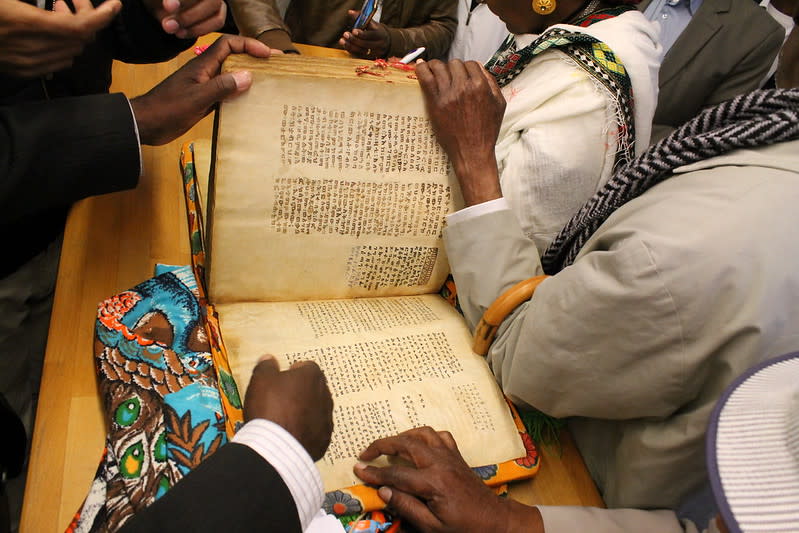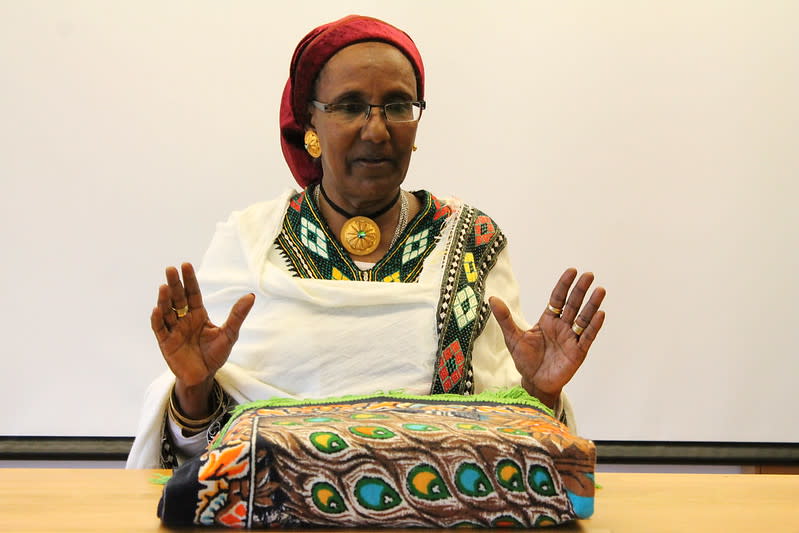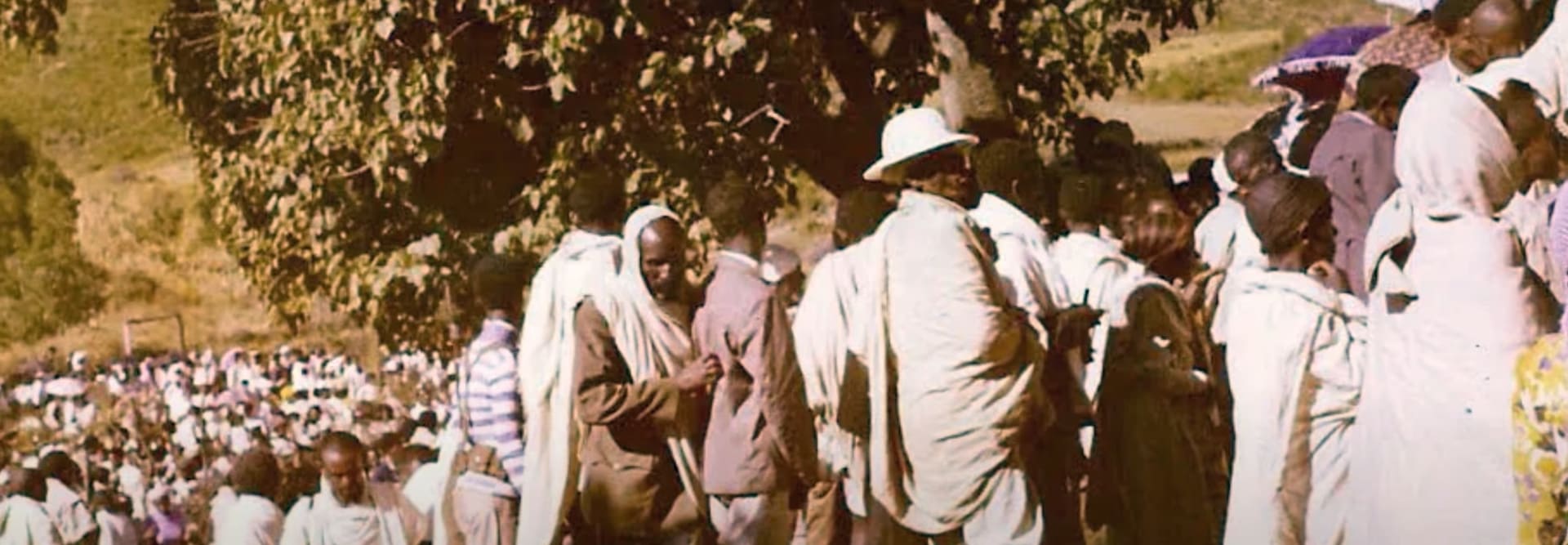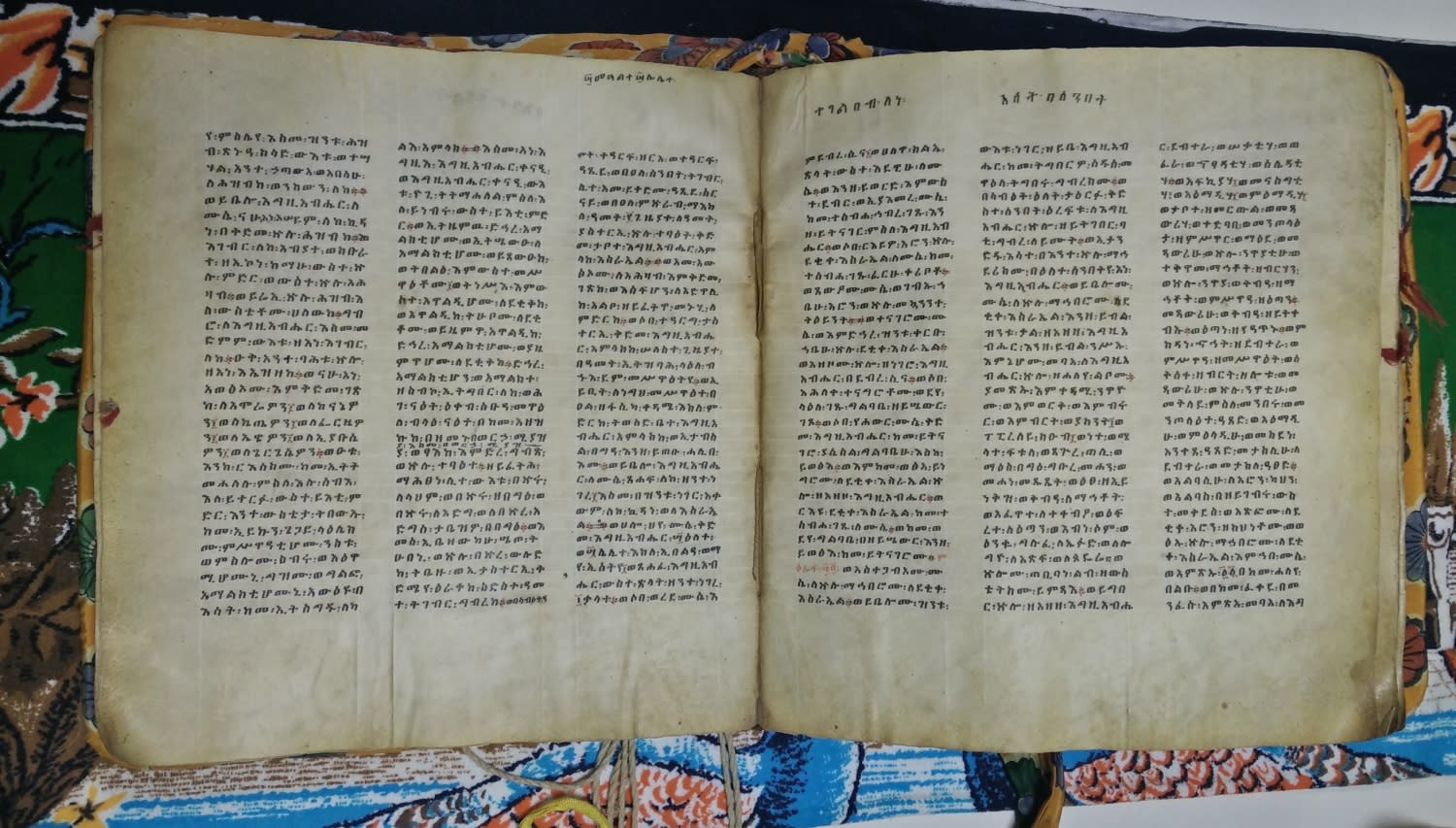SIGD


On Sigd, Ethiopian Jews traditionally pray to God, hold communal introspection and plead to return to Zion (nowadays to give thanks for that dream becoming a reality). The day also symbolizes the acceptance of the Torah and the renewal of the covenant between the Jewish people and God.
The name Sigd means prostration (bowing in worship) in Ge’ez and comes from the word sged in Aramaic, one of the languages of the Talmud.
Sigd is celebrated on the 29th of the Hebrew month of Cheshvan – 50 days after Yom Kippur.

To celebrate Sigd in Ethiopia, Jews would fast for the first part of the day.
They would come from afar, meet in the morning, and walk together to a high mountain to pray in the direction of Israel, towards Jerusalem.
They would come down from the mountain in the afternoon and break their fast with a communal feast and dancing.

This sacred text is the Orit, which comprises the Torah plus the Book of Joshua, the Book of Judges and the Book of Ruth. It is written in the ancient Ethiopian script Ge'ez.
On Sigd, the Kessim (spiritual leaders of the community) read from the Orit. Members of the community also recite psalms and pray for the rebuilding of the Temple.
A rare copy of the Orit reached Jerusalem and was welcomed into the National Library of Israel a few years ago.

Ethiopian Jews are also known as the Beta Israel (House of Israel) community. The community lived and grew for centuries in the area known today as Ethiopia.
Most of the community moved to Israel in the late 20th century and this transition is an integral part of Ethiopian-Israeli identity today.
Since most members of the Ethiopian Jewish community now live in Israel, thousands of Ethiopian Israelis travel to Jerusalem on Sigd.
They visit the Kotel and gather at the Armon Hanatziv Promenade in Jerusalem, which overlooks the Temple Mount.
The Kessim dress in traditional robes and carry the Torah scrolls while holding brightly colored parasols. They recite passages from the Orit as well as prayers of blessing and forgiveness.
The holiday serves as an annual gathering of the entire Ethiopian community and is viewed as an opportunity to strengthen the connection with their roots and culture.